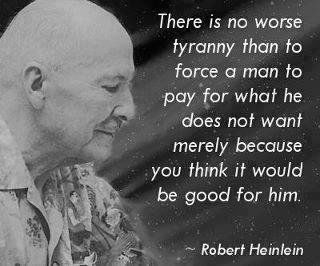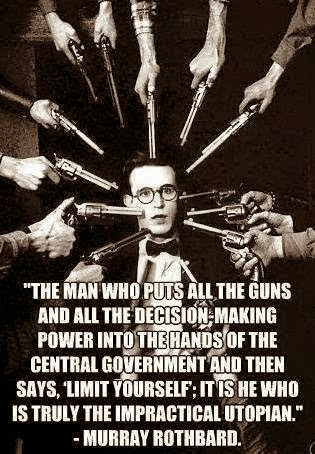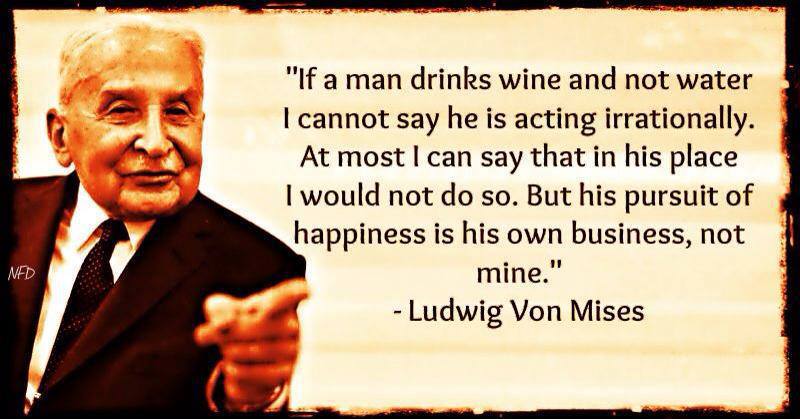If I have any readers left, I must apologize for my hiatus. Over the past 4 months I've finished building a house, moved cross country into the house, started a business, have been running that business, and have been otherwise occupied by all the other fun things that come with new business and home ownership. Needless to say, something had to take a backseat and my little hobby blog was it.
Truth be told, though, it's been nice taking a time-out from the everyday annoyances and outrages (real or imagined) in the political world. Trying to have an opinion all the time about current events is tiresome, emotionally and spiritually draining, and oftentimes it feels like you're yelling into the wind making you question why you even bother, especially when you're just little old me doing her thang without legions of followers. But onward we shall press and my One Small Voice shall keep singing her tune and making whatever small impact in the world it may.
************
While not the outrage of the day, the topic of education has been on my mind a lot. There's still plenty in the news about education, even if it's not on the front headlines. There have been stories in the news about the
lack of programmers and engineers in America, causing a need to give high-paying, breadwinner jobs to foreigners or
outsource those jobs. The student loan and skyrocketing tuition mess is never far from the spotlight. The battle over Common Core and the recent re-authorization of the previously expired
No Child Left Behind (although this time supposedly New and Improved!) is still making waves. And then there are the never-ending small battles that continually plague the public education system, like what to include in textbooks, to say the Pledge or to not say the Pledge, teacher salaries, merit-based pay, school testing, and on and on and on.
What if there were a better way? What if we didn't have to constantly be fighting these battles? There's an old saying, "You can't solve a problem from the same thinking that created it." The problem with the problems is that everyone is trying to solve them by keeping everything 95% the same and just tweaking this or that. Vouchers, charter schools, busing kids in to different school districts, more testing, less testing. Ultimately, none of these solutions will work or have worked on any wide scale because the fundamentals of the government run and managed, top-down, one size fits all education model remains the same.
Nor are the problems that plague us in the classroom merely a matter of funding, as many on the left, who have yet to meet a problem in society that more government funding couldn't or shouldn't solve, are quick to point out. Despite having spent nearly $2 trillion dollars on education at both the federal and state level since 1970, end of high school test scores in reading, math, and science have
remained unchanged over the past 4 decades.
Long ago I began to brainstorm ideas of how education could be run if it were completely privatized. Yes, that's right. No government run schools (some would say indoctrination centers) whatsoever. "But, but, how would we educate our kids? Why do you hate education? Why do you hate children?" is the cry I expect to hear, especially from the progressive left, who can't imagine how society functions without the fist of government forcing one size fits all solutions on everyone. It reminds me of a famous quote from the French philosopher Frederic Bastiat in his book,
The Law:
Socialism, like the ancient ideas from which it springs, confuses the distinction between government and society. As a result of this, every time we object to a thing being done by government, the socialists conclude that we object to its being done at all. We disapprove of state education. Then the socialists say that we are opposed to any education. We object to a state religion. Then the socialists say that we want no religion at all. We object to a state-enforced equality. Then they say that we are against equality. And so on, and so on. It is as if the socialists were to accuse us of not wanting persons to eat because we do not want the state to raise grain.
Yes, if you ever talk about privatizing an area of life that has been taken over by government, many people will look at you as if you just murdered a kitten because they can't wrap their head around the fact that these institutions can, and historically have, existed without the aid of government. Receiving twelve years of government education in government run schools taught by government paid teachers from government approved textbooks and learning the government-approved version of history will unsurprisingly leave you with a citizenry that has zero imagination as to how society could ever function without government intrusion in all areas of life.

As I began to conceive of some of my ideas, I was surprised at how freeing it was to think outside of the box. I was giddy with the number of solutions I came up with. I relished the sense of freedom I felt merely brainstorming ideas completely outside of the current paradigm. Imagine what we could achieve if we could unleash the brainpower and ideas of millions of other people in shifting the educational paradigm.
The possibilities are endless once you free yourself from the mentality that school must be 7:30-3:30am, M-F, August-May, with these specific subjects taught (regardless of the child's interest in them) to this grade and age group only (regardless of a child's development), tested X number of times per year, and any child who can't adapt to this style of education is deemed a misfit and made to feel like a failure or a bad apple.
In light of that, here are just a few of the ideas that I came up with that shatter the current education paradigm.
Let businesses and corporations provide education
Wha...? I know this idea is about as tolerable as Kryptonite is to Superman for many liberals, to whom corporation is an evil word, but hear me out. There is clearly a mismatch of skills vs. needs in today's workplace. As I mentioned before, there is a shortage of engineers and programmers in America today. Imagine if Google, IBM, Apple, Shell, GE and the like ran satellite schools around the country where they would train groups of kids in the skills they anticipate needing in the coming years. Each school would be tailored to each company's need; some might provide a well-rounded education while still teaching them the skills relevant to their niche market. Others might do intensive training and apprenticeship in only their field requiring students who wanted to pursue other areas of interest to find other programs with which to supplement their education.
Businesses might very well provide education for free as an investment in future talent expecting their returns from a highly skilled and specifically trained workforce to more than cover the costs of educating them. Better yet, many of these students could walk straight into a well-paying job and not have to incur tens of thousands of dollars in student loan debt by going to college after the fact. This is how we match skilled employees with marketplace needs instead of ending up with a generation of Women's Studies majors with no marketable skills to speak of trying to pay down $50,000 worth of student loans on the salary of a Starbucks barista.
At the grade school level, some corporations and businesses might open up schools of their own as a way to attract talent to their companies. All employees of XYZ Corporation, from the janitors to the executives, would have the option of sending their children to XYZ school.
Business-run grade schools would solve numerous problems: First, it would allow people of all income levels access to a quality education. The janitor's kid can attend the same school as the CEO's kid, instead of the stratification we see today between private and public education.
Second, teachers might actually make what they're worth if teacher salaries are paid for with corporate profits instead of the limited pool of taxpayer funds they are paid from currently.
Businesses and corporations could create a VP of Education position and they would be in charge of innovating in education just like a business must innovate in the marketplace to stay viable.
The best part is, none of this is compulsory, unlike government education. There is no one putting a gun to your head and saying your child must attend the school of the business in which you work. If you find the school is lacking, or if the thought of Goldman Sachs educating your kids makes you squeamish, there will be other innovators in education ready to pick up the slack.
In the current government run system, if you're unhappy with your child's school, you either have to pack up and move to another district because there is no school choice option, pay tens of thousands of dollars per year for a private education, give up part of the family income in order to homeschool, or be one of the millions who can't afford to do any of that and just have to settle for a sub-par education for your child.

"Hey, Haley. If this is such a great idea, why aren't corporations doing this already?" Well, they are in a limited sense. Multinational corporations that have headquarters and large operations overseas often provide schooling in their native language for the kids of the people who moved overseas to work. But otherwise, why would they? When the costs of school are currently socialized, meaning entirely paid for by taxes, why would they invest in education themselves? It's the same reasons you don't see these same businesses paying for roads to allow customers to get to their businesses. If the government is paying for it (meaning the taxpayers), why would businesses open their wallet instead?
In economic terms, this is called "
crowding out". Socialized services like in education, roads, and healthcare crowd out private efforts other businesses might undertake because the citizens see the government services as "free" and will therefore, in most instances, utilize those "free" services over private services, which will require extra payment, even if the quality of the socialized public services is seen as inferior to private services.
If you eliminate government run schools entirely, you allow other enterprises to enter the marketplace in education and fill the gap left behind, but that won't happen while education remains socialized.
Private Teachers
With no government schools running the show anymore, teachers can choose to go into business for themselves. Like a small business owner, they can be their own boss and come up with their own curriculum and education plan, making their own decisions about how much they will charge, where they will be located, how many students they will accept, etc.
For instance, a teacher could choose to only educate 10-12 year olds. Her education plan might entail only accepting 12 students at a time to keep it manageable. She could do it in a classroom setting, with field trips, in her home, or a combination of all of them. To keep it affordable, she would charge only $100/week per student, less than what most people pay for daycare these days. That would earn her $1200/week and $60,000/year pre-tax based on a 50 week schedule that many Americans currently work.
50 weeks? Why would a teacher choose to work 50 weeks a year when they currently have 2.5 months off in the summer? Simple: freedom. She can set her own schedule. Gone are the days when she has to be up at 5:30am to get to school by 7am. She can choose to start her classes at 9am and finish at 3pm with 30 mins for lunch M, W, Th., F, and Sat. so long as the parents find this schedule acceptable.
Naturally, she could choose to charge more and work less, maybe only 45 weeks a year, in order to maintain the same level of income. That's the beauty of this system is that you have the freedom to make those decisions for yourself.
Parents also get freedom this way where they can choose a teacher that fits their work schedule. If a parent works evenings, they could find a teacher who held classes in the evenings while they worked, eliminating the need for a babysitter with the added benefit of allowing the parent to be able to spend time with his child during the day.
If a parent had a job that was affected by the seasons, for instance with a business being most active in the winter and summer months, that parent could find a teacher that scheduled breaks and holidays in the fall or spring to better accommodate the parent's schedule so that they might actually get to take a family vacation together for once. It also provides the added benefit that not every single family in America is trying to take a vacation between the months of June-August, alleviating the overcrowding problem seen at many popular holiday destinations during those months and allowing those holiday destinations a more steady stream of business throughout the year instead of just being slammed for 3 months out of the year and dead the rest.
Once again, the possibilities are endless with an array of teachers ready to meet the various needs and demands of the parents and their kids. They could team up with other teachers, like often happens in the medical profession, and cost share on a building, educational materials and skill sets. One teacher could do English, art, and history while another would do math, science, and PE for instance. One would do the morning session with one group of kids and then the afternoon session with another.
There are too many options to even discuss here. When you start thinking of all the possibilities, it becomes exciting. A teacher or a program for every family and, most importantly,
choices, choices for everyone.
The problems solved through this model should be evident: Any number of educational opportunities to suit every individual family's unique circumstances instead of a one size fits all model forced upon every family in one geographic area; accountability in the classroom whereby bad teachers are punished and good teachers are rewarded via the market; eliminating the need for endless public debate about tying teacher pay and tenure to test scores, dress codes, religion in school, etc.; flexibility for parents, students, and teachers alike; affordable options for families and money-making opportunities for teachers.
If a program isn't working for your child, you can switch them out to another teacher or program somewhere else. Either the teacher adapts or he goes out of business like anyone else. Teachers would also have the freedom to "fire" their students if they are a problem student or if the parent is repeatedly truant on payment. It's a win-win situation.
Private Schools
In the absence of government education, the traditional school model would not cease to exist. There are many benefits to the model; being able to educate many kids at the same time and in the same place is very cost effective. The social aspect is always a big factor. The structure appeals to many parents and students.
Private schools in the absence of government schools would be different, however. Instead of private schools almost exclusively catering to the rich, as is primarily the case right now, the door would be open for private schools to be able to cater to students of every income level.
Going back to the crowding out effect I spoke of earlier, most private schools only cater to the rich because the "free" government schools already have monopolized the market for low income students. It's a losing business model to try and open a private school targeting low income students while trying to compete with the "free" government education.
This all changes in the absence of government schools. Private schools can now develop models that will be able to include low income students. Whether through charitable funding, lotteries, scholarships, or grants, private schools would still be able to offer free or very low cost education to America's neediest families.
Given how high a priority education is to most people and how passionate many teachers and educators are across the country, you can bet that they can come up with any number of workable solutions to be able to educate the poorest and neediest among us. Once freed from the confines of government limitations, the human imagination can be unleashed to find solutions that work for everyone, not just the few.
Entrepreneurial Opportunities
Along with the decoupling of all things education from the State, entrepreneur opportunities will arise for those who know how to take advantage of them.
Transportation needs would still be required to get students to and from schools. No more big yellow buses, at least not paid for by the State. Private transportation services would pop up. Buses kitted out with A/V equipment showing educational videos on the way to and from school could replace the hollow Twinkies devoid of any creature comforts or even basic safety equipment like seat belts.
Uber, Lyft and other ride-sharing services might expand their businesses (so long as the government hasn't banned them from that city, an argument for another day) to be able to ferry students to their intended destination.
Lunches and snacks would still have to be provided at many schools. No more Grade E mystery meat slopped onto a plate. No more of Michelle Obama's starvation lunches to be Tweeted to the world. Indeed, nutrition would be put back into the hands of parents and communities and not government busybody bureaucrats. Most certainly there would be someone out there who would find a way to put together delicious, nutritious, school lunches using high quality ingredients. Schools could grow their own gardens with student help and be able to harvest those vegetables for healthy school meals.
Heck, maybe some schools would have their own kitchens where students could make their own meals. You could sign up in advance for a limited number of spots each day and choose one of 3 or 5 easy things you'd like to learn how to cook and you could make cooking part of the whole educational experience.
Each new business opportunity will open new doors for other businesses to refine or improve the existing model, like what happens in the marketplace everyday. New educational tools will be thought of that can be sold to schools across the nation. Small businesses could enter the marketplace serving only a small number of schools but still providing a healthy living for small business owners at the same time as huge enterprises find ways to service large numbers of schools and educational outfits. Jobs! Widening the income pie! Opportunities! Voluntary market solutions instead of coercive government mandates! Winning!
Conclusion
The challenge with advocating a more libertarian or free society is laying out a vision as to how things would work without government involvement. Government has infiltrated so many aspects of our society now that many generations have never experienced life any other way and therefore can't imagine any alternative ways of doing things. Some aspects of society are admittedly more difficult to free from government's trenches than others, but I believe education is one of the easiest and most obvious things we can start with.
Once people begin to re-imagine how a society would function without government intervention in this or that aspect of life, it becomes easier to take steps towards that vision. Shattering the education paradigm can't and won't happen so long as we continue to believe that government should be the fundamental provider and arbiter of education in this country and that the only so-called reforms we're allowed to entertain in education still maintain its role as such and only happen with the government's permission.
Truly shattering the education paradigm means imagining a world in which the government is not the sole or largest provider of education. Until we embrace that vision, battling government bureaucrats and politicizing everything that has to do with education with few victories that affect even fewer people will continue to be the norm. I'm ready for real changes and real choices in education, are you?

























